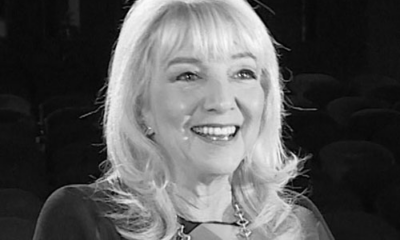
Lifestyle/Community

Anatevka brings religious women centre stage
Anatevka, the latest production by the Joburg Jewish Women’s Theatre, is an adaptation of the story of Tevye’s Daughters by Sholem Aleichem which explores life in the shtetl and creates an opportunity for religious women and girls to perform.
The Joburg Jewish Women’s Theatre, founded by Linda Zulberg, “provides a platform for observant Jewish women and girls to showcase their performing talents in a halachically acceptable environment”. Performances are to strictly all-women audiences, with all-women casts.
“The Jewish Women’s Theatre gives ladies and girls from all over Johannesburg the chance to know each other and work together. It’s really a unity project, in which people from different levels of observance in the Jewish community work together and bridge the gaps between them to create a fabulous environment in which we can grow artistically, emotionally, psychologically, and indeed spiritually,” said Zulberg.
Zulberg adapted the story of Tevye’s Daughters with music from Fiddler on the Roof. “It’s been a fantastic exploration, not only of the book itself and the story of Tevye the Dairyman, but an opportunity for the people in the play to dive into themselves, into our history, and to understand what life in the shtetl was all about. And to discover how we relate to so many of the issues that the characters face,” she said.
As the audience walked in to see the show, they were greeted by the residents of Anatevka in full costume and character. We then entered the village of Anatevka, with predominantly wooden sets and props to create the atmosphere of an antiquated village.
From the opening number, Tradition, the shtetl came to life with vibrant choreography. Choreographer, Marise Mishan, whose background includes So You Think You Can Dance South Africa, Cats, and Phantom of the Opera, said that working on this production had been “incredibly rewarding” as it gave an opportunity to young women and girls who “don’t get the opportunity otherwise to let these latent talents shine”.
Though it’s an amazing outlet for self-expression and creativity, choreographing this kind of production comes with a few challenges, Mishan said. “One of the challenges of having women play the role of men is finding ways to create masculine movements that can be performed effectively by female bodies in a way that’s believable and achievable,” she said. “Another challenge is that if two characters are playing those of the opposite sex, they aren’t allowed to touch. A lot of the scenes are highly emotive, and obviously, as a choreographer, I wanted to include that physical touch, but it wasn’t allowed. Finding new ways to use body language to show connection and emotion was challenging, but it was a good challenge because it forced me to think outside the box.”
Being a community production, the cast is comprised of a range of ages and skill levels. Mishan said she was pleasantly surprised by the focus and commitment of younger members of the cast (about 10 to 12 years old), including during rehearsals that ran until late at night.
“With regard to skill level, I think at the end of the day, I had to keep in mind that this is a community production, and I was doing it for a community as opposed to myself. Obviously, as a choreographer, I want to create beautiful art and I want to push myself creatively and make it artistic, beautiful, and different,” she said. “But, being an amateur production, I couldn’t necessarily do that.” She said the most important thing was to empower dancers with the experience of performing and being able to learn new styles.
Alongside Mishan and Zulberg, the team included producer Racheili Stromberg and musical directors Tal Jankelowitz and Sarah Chana Katzman.
While there were standout performances, such as Shani Sommer, who embodied the character of Tevye in voice and mannerism, the beauty of the performance ultimately lay in the strong sense of community evident in the cast. It was clear through ensemble performances such as To Life that every performer had tremendous joy and pride in the production they had created.










